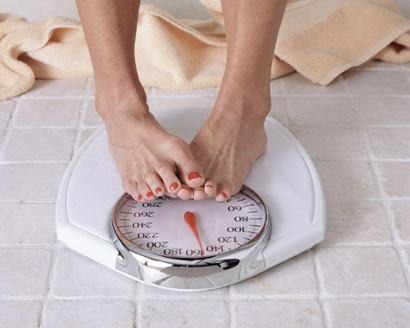Are Health Food Stores Making You Fat?
One supermarket trend we really like: It's easier than ever to buy better-tasting food — that's also better for you. Case in point: the wide selection of all-natural, organic products and high-quality specialty items at Whole Foods Market, Trader Joe's, and the Fresh Market. But beware: These 21st-century "health food" stores can actually trick you into eating less healthfully. How? By making bad-for-you food even more appealing. Your best defense: knowledge. That's why we uncovered the secret ways these supermarkets supersize your stomach.
5 Ways To Lose Weight At a Restaurant
1. They Drive Your Senses Senseless
Those delicious in-store product samples that you find in every specialty supermarket? They not only whet your appetite for the product, but also encourage you to buy more food overall, according to a study from Arizona State University. In fact, the research indicates that even the smell of cooking food might contribute to this effect. The stores are well aware of this. In fact, the Fresh Market invites you to "help yourself to a sample of freshly brewed coffee" and brags that "fragrant smells fill the atmosphere."
2. They Drive Calorie Counts Underground
When you buy a package of cookies the complete nutrition information is listed. But when you buy cookies made at an in-store bakery, you won't find calorie counts. That goes for all the bakery items, like the "gluten-free vanilla cupcakes" at Whole Foods. For perspective, just one of those Whole Foods cupcakes packs 480 calories. (The calorie count is listed online, but not in the store.) Knowing those numbers is critical: University of Mississippi researchers found that unhappy people—who are more likely to overindulge in comfort foods—ate 69 percent fewer calories when they checked the calorie content before digging in.
3. They Make the Junk Look Gourmet
Ever notice that more-expensive products tend to come in fancier packages? Researchers at the University of Michigan recently found that food purveyors may actually use fancy fonts and labels to help justify higher prices. The scientists theorize that attractive fonts and labels give people the perception that they are getting more value for the higher cost.
Good Fat, Bad Fat: Learn the Difference To Lose Weight
4. They Bask in the Health Halo
Do you consider products from specialty supermarkets to be healthier than those from other grocery stores? If the answer is yes, you could be doing your waistline a disservice. When people guess the number of calories in a sandwich coming from a "healthy" restaurant, they estimate that it has, on average, 35 percent fewer calories than they do when it comes from an "unhealthy" restaurant, according to a study in the Journal of Consumer Research. Remember that the next time you reach for that package of Whole Foods' Organic Fruit & Nut Granola. One cup of this "healthy" product contains almost 500 calories.
5. They Bulk You 5 Up "In Bulk."
On the Fresh Market Web site, the store claims to have the largest bulk snack selection "in town." But be careful what you buy in this bulk section: It may cause you to look like you fit in there. Why? By filling your own bag with a big scoop, you'll likely underestimate how much you've served yourself. Case in point: A Cornell University study found that nutritionists who were asked to serve themselves ice cream with large bowls and spoons dished out about 57 percent more than those given smaller bowls and spoons. Buy basic staples like spices, grains, and legumes in bulk, but make sure your snacks always come with serving sizes and calorie counts.
6. They Buffet Your Belly With Buffets
If you're watching your weight, don't step near the Whole Foods buffet. Cornell University researchers found heavier diners tend to overindulge in buffet settings. (Surprise!) Our real beef: While Whole Foods lists selections' ingredients on the buffet's ID labels, it doesn't provide nutrition information for any of them. And yes, one of the items is macaroni and cheese—or "pasta and cheese" as the chain calls it.
Excerpted from Eat This, Not That: Supermarket Survival Guide. Don't go the grocery store unprepared — get your own copy today!
David Zinczenko, Excerpted from Eat This, Not That: Supermarket Survival Guide
Read More From Women's Health:
Foods That Make You Do Bad Things
